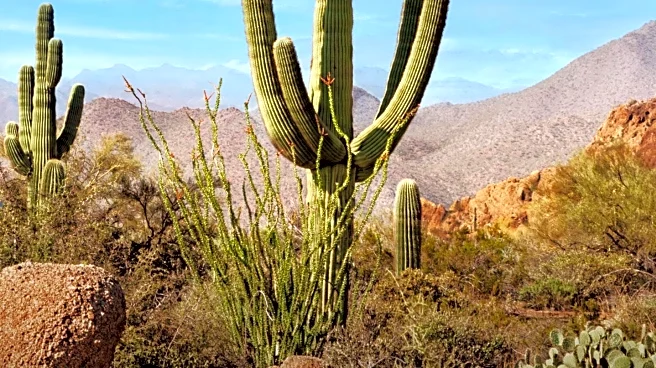What is the story about?
What's Happening?
In Mexico, the sale of acitrón, a candied product made from the endangered biznaga cactus, continues despite its illegal status. The Mexican government banned acitrón in the early 2000s due to the overexploitation of the biznaga cactus, which is now at risk of extinction. Despite this, the demand for acitrón remains high, particularly for traditional dishes like chiles en nogada. Vendors and consumers continue to use acitrón, valuing its unique taste and cultural significance. However, some chefs have started using alternatives to preserve the cactus species.
Why It's Important?
The ongoing use of acitrón highlights the tension between cultural traditions and environmental conservation. The biznaga cactus is a critical part of Mexico's biodiversity, and its potential extinction poses a threat to ecological balance. The situation underscores the need for sustainable practices and the adaptation of traditional recipes to protect endangered species. This issue also reflects broader challenges in balancing cultural heritage with environmental responsibility, a topic of increasing relevance in global conservation efforts.
What's Next?
Efforts to protect the biznaga cactus may involve increased enforcement of existing bans and the promotion of alternative ingredients in traditional recipes. Public awareness campaigns could help shift consumer preferences towards sustainable options. Additionally, research into sustainable cultivation methods for the biznaga cactus could provide a long-term solution, allowing for the continued cultural use of acitrón without threatening the species' survival.
















